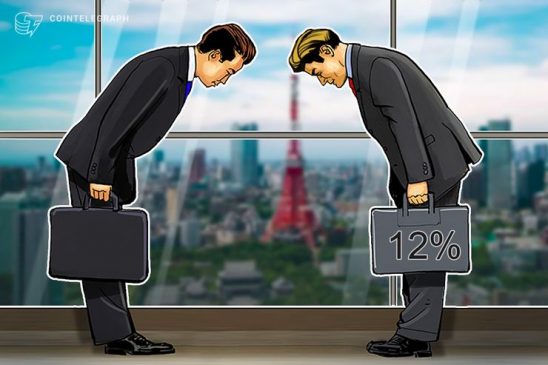Japanese financial services giant SBI Holdings will expand its crypto business portfolio by acquiring a 12 percent stake in Clear Markets, according to SBI’s financial results report published July 31. SBI is scheduled to acquire up to 20 percent in the future.
Clear Markets is a U.S.-based electronic trading platform developer and operator that offers over-the-counter derivatives electronic trading services in the U.S., U.K., and Japan.
SBI’s new stake in Clear Markets is part of an effort to create a cryptocurrency derivatives trading platform catered toward institutional investors. The platform will reportedly allow financial institutions to trade more smoothly on the crypto derivatives market.
Clear Markets will provide hedging for cryptocurrency swap transaction services which is “necessary for the handling of cryptocurrencies and financial instruments that use cryptocurrencies.” In the report, SBI Group noted that the increased use of cryptocurrencies and its derivatives will increase liquidity levels.
While the price of the stake was not disclosed, according to Nikkei Asian Review, it is likely worth around $9 million.
Clear Markets is planning to launch а crypto swap trading service and holds a swap execution facility (SEF) license from the U.S. Commodity Futures Trading Commission (CFTC) and derivatives brokerage in the U.K. and 32 countries in Europe. The company is an an affiliate of QUICK Corp. which is a subsidiary of Japan’s Nikkei Inc.
SBI has invested in more than 20 crypto crypto-related projects over the past year, and formally launched the public version of its cryptocurrency exchange VCTRADE July 17.
Japan is one of the leading countries in terms of cryptocurrency adoption. According to Clear Markets chief executive Mark Brickell, “as much as 50 percent of cash trading in cryptocurrency,” has taken place in the country.
Last week, the Japan Virtual Currency Exchange Association (JVCEA) announced it will require its member exchanges to place limits on the trading activity of some clients in an attempt to prevent investors with “small assets” from suffering heavy losses.




